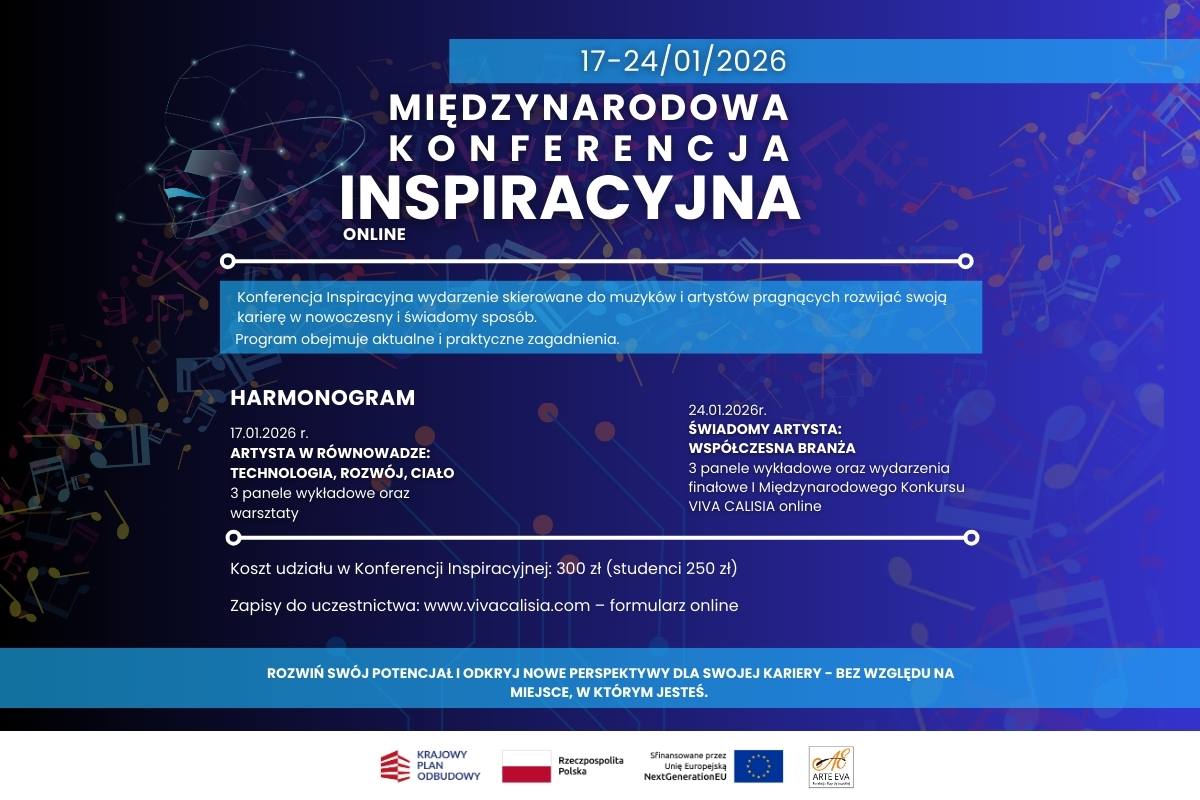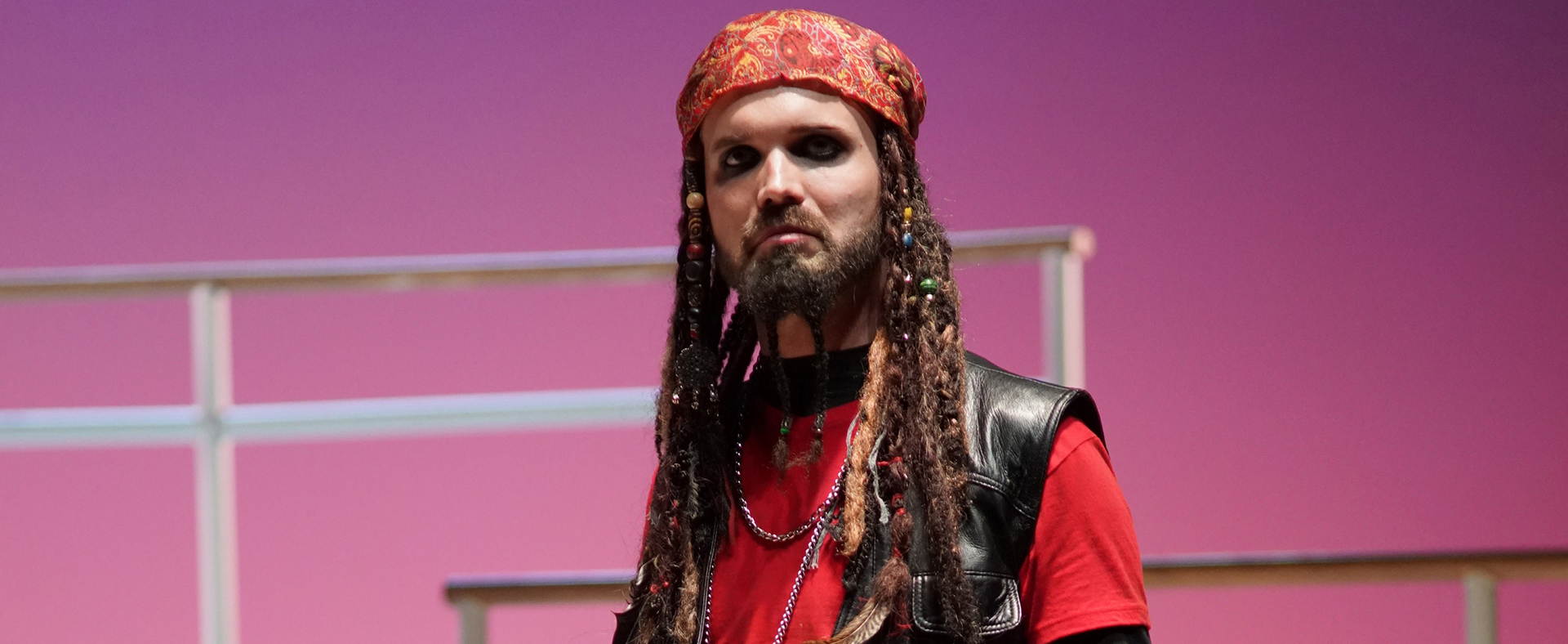 I am fascinated by difficult characters – interview with bass Hubert Kowalczyk
I am fascinated by difficult characters – interview with bass Hubert Kowalczyk
Hubert Kowalczyk sings Kun in Carl Maria von Weber’s “Der Freischütz.” The show under the baton of Yoel Gamzou, directed by Andreas Kriegenburg, opened at the Staatsoper in Hamburg on November 17, 2024. Jolanta Łada-Zielke talks to the Polish bass.
Could you please tell us about your musical beginnings?
I started learning to play the piano at the age of six, aside from that I had an episode with the accordion. After the mutation, which occurred unexpectedly quickly, I started taking voice emission lessons. I began with performing popular music, mainly sung poetry, but my first teacher said my voice was a bit too heavy for that kind of repertoire. He advised me to try my hand at classical music instead. Back then, I treated singing as a stepping stone from everyday school life. I developed a serious interest in theatre and opera owing to my acting teacher at the music school.
The choice of the field of studies was a measured decision then?
Yes, I went for a university in Berlin. I was also accepted in Gdańsk and Łódź, but I followed my family’s advice to study abroad. Berlin is an opera hub, with three active opera houses. In the second year of my studies, I applied with the Opera Academy at the Polish National Opera as I wanted to liaise with the Polish stage. I made a number of valuable acquaintances, which contributed to my artistic development. Many of my colleagues have become an inspiration for me. I spent three years commuting between Warsaw and Berlin, as well as Pisa and Livorno, where I studied on Erasmus. Although I had to travel a lot during the period, it has resulted in a number of contacts I cherish to this day.
What valuable experiences did you gain from each of these places?
First of all, the knowledge of foreign languages, which makes it so much easier to prepare for a role. Language acquisition through everyday life in a native speaking environment is more effective than any language course. I also acquired culinary skills from Italy. Studying in Germany reduces the cultural distance between people of Central and Eastern Europe origins and the Western professional market, which has happened in my case. On the other hand, the three years I spent at the Opera Academy in Warsaw polished my Slavic musicality, which is a little different than the German one. I don’t want to compare or juxtapose the two worlds. I think they can draw from and complement each other. My professional biography would have probably looked different if I had completed my bachelor’s degree in Poland and went to Germany only for my MA.
Which bass part do you identify with the most?
The list of roles I would like to sing is long, both from the musical and dramatic perspective. One of the reasons behind the choice of my profession was the fact you can “get dirty inside” on stage, experience a certain emotional diapason, which we usually do not undergo in everyday life. Regardless of the values we would have never professed in real life, the stage allows us to go beyond them, as well as our own limitations. I love roles that have little to do with me as a person. I am fascinated by characters facing moral dilemmas, rejection by society, turning into villains. The examples include John Claggart in Billy Budd, Mephisto in Faust, or Wagnerian roles, which I find most interesting from a dramaturgical point of view.
Has any of the roles become a milestone in your career?
Yes, my debut in Hamburg two years ago as Colline in „La bohème.” I currently perform the part of Kun, although it is a more spoken role. The fact the management of the Hamburg Staatsoper has entrusted it to me is a credit of trust, resulting from the fact I have lived in Germany for more than ten years, participating in the local artistic life. This year I am also singing Sarastro, Sparafucile and Ferranda. A debut in the role of Sarastro, in a German A-class theatre is an honour for any emerging bass and opens the doors of other theatres. In September, I sang Truffaldin in the new production of “Ariadne on Naxos” in Zurich. I round off the current season with a Wagnerian debut as Fasolt in Basel. In a few years, I see myself in the role of Leporello or Banca. However, in the long term, I would like to become involved with the Wagnerian repertoire, because the dramatic element is more prominent there.
Do you agree with what Richard Wagner wrote about the opera “Der Freischütz” in his treatise “Opera and Drama:” Weber, filled with an unshakable faith in the characteristic purity of his unique and indivisible melody, subdued the poet with dogmatic cruelty and forced him to erect a funeral pyre on his own, on which the unfortunate man was to be burned to ashes in order to fan the fire of Weber’s melody. The poet in “The Marksman” brought himself to suicide without knowing…
“The Marksman” is an interesting opera because of the dramatic material. I’m not surprised Wagner described it that way, because Weber in a way actually sacrificed the drama of the libretto for the sake of the musical layer. I agree with this statement, although I think that certain conventions of a given era, or means of expression, may have limited Weber a bit. The composer was ahead of his time, although due to the times in which he lived, he had to “dress” his work in an early Romantic costume.
Do you perform in Poland?
I occasionally do. Two years ago, I took part in a concert performance of two stage cantatas by Bach during the Opera Rara Festival in Krakow. I have focused on the Western European market for now, but I must admit singing in Poland would bring me great joy. We have to remember the Polish market is unfortunately smaller and more hermetic, and the planning of artistic seasons is more short-term than in the West. While in Germany the calendar of events is set for at least three seasons in advance, in Poland, it is a year, sometimes even less in advance. This results in a huge difficulty, both for me and for my agents, to organize anything with a Polish institution. However, I am optimistic – I hope the situation will change in the future.
Thank you for your time.
Bass Hubert Kowalczyk is a graduate from the Hochschule für Musik ‘Hanns Eisler’ in Berlin, where he studied with Prof. Martin Bruns and Prof. Dr. Michail Lanskoi. He is a former member of the Opera Academy at the Polish National Opera in Warsaw, where he was under artistic mentorship of Eytan Pessen and Olga Pasichnyk. His past engagements include house and role debuts as Zuniga at Staatsoper Berlin under Bertrand de Billy, as Nourabad in Bizet’s “Les pêcheurs de perles” at Opernhaus Zürich, and as Collatinus in a concert performance of Britten’s “The Rape of Lucretia” with the Deutsches Symphonie-Orchester Berlin conducted by Robin Ticciati, as well a role and house debut at the Bregenzer Festspiele as Haly in Rossini’s “L’italiana in Algeri.” Since 2021, he has been a member of the soloist ensemble of the Staatsoper in Hamburg.
Photo on homepage: Natalia Jansen





